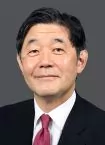Effective April 8, 2020 at midnight Japan time, the Japanese government declared a state of emergency specifically designated for Tokyo, Osaka, Hyogo, Fukuoka, as well as the three prefectures surrounding Tokyo (Kanagawa, Saitama and Chiba) initially until May 6. The declaration was made under a special measures law, which will provide each prefectural governor the legal authority to request or demand restrictions on the use of various establishments in their respective prefectures,* such as schools, nurseries, movie theaters, exhibition halls, hotels, museums, art galleries and retail stores. Certain establishments are expected to be exempt, such as supermarkets (food and hygienic products only), drugstores, gasoline stands. Railroads, roads and essential utilities are also expected to continue operations (although the operators of specific train lines and essential utilities may adjust their operations as they deem appropriate).
Unlike the shelter in place and similar lockdown measures that have been implemented in the United States, Europe and elsewhere, the measures available to prefectural governors are, with the exception of certain situations discussed below, non-compulsory in nature. There are generally no penalties for individuals or businesses. Nevertheless, the measures taken by the prefectural governors should have an impact as the Japanese public has a strong sense of moral and social obligations.
In addition, unlike various states in the United States and other countries, there is not expected to be detailed designations of "essential business" other than those broadly declared by the government or prefectural governors as the Japanese measures are largely voluntary. Businesses subject to "voluntary" restrictions will be based on each prefectural governor's discretion (as long as it is within what is permissible under the special measures law). Accordingly, each prefecture subject to the state of emergency will have different restrictions on the use of various establishments.
Prefectural governors can compulsorily demand the sale of essential supplies such as medicinal supplies and food if the request or demand for such items is not complied with. Prefectural governors also have the authority to compulsorily use land or a particular building without the owner's consent for use as a temporary medical facility.
The Prime Minister also announced a 108 trillion yen (almost $1 trillion) economic stimulus package which will, among other items, provide cash to qualified families (with additional cash for each child of a family) and small and medium-sized businesses (including freelancers).
*Japan is comprised of 47 subnational jurisdictions, including one metropolis (Tokyo), one "circuit" (Hokkaido), two urban prefectures (Osaka and Kyoto) and 43 other prefectures. For simplicity we refer to all jurisdictions as prefectures.
Visit us at www.mayerbrown.com
Mayer Brown is a global legal services organization comprising legal practices that are separate entities (the Mayer Brown Practices). The Mayer Brown Practices are: Mayer Brown LLP, a limited liability partnership established in the United States; Mayer Brown International LLP, a limited liability partnership incorporated in England and Wales; Mayer Brown JSM, a Hong Kong partnership, and its associated entities in Asia; and Tauil & Chequer Advogados, a Brazilian law partnership with which Mayer Brown is associated. "Mayer Brown" and the Mayer Brown logo are the trademarks of the Mayer Brown Practices in their respective jurisdictions.
© Copyright 2020. The Mayer Brown Practices. All rights reserved.
This article provides information and comments on legal issues and developments of interest. The foregoing is not a comprehensive treatment of the subject matter covered and is not intended to provide legal advice. Readers should seek specific legal advice before taking any action with respect to the matters discussed herein. Please also read the JSM legal publications Disclaimer.
[View Source]

